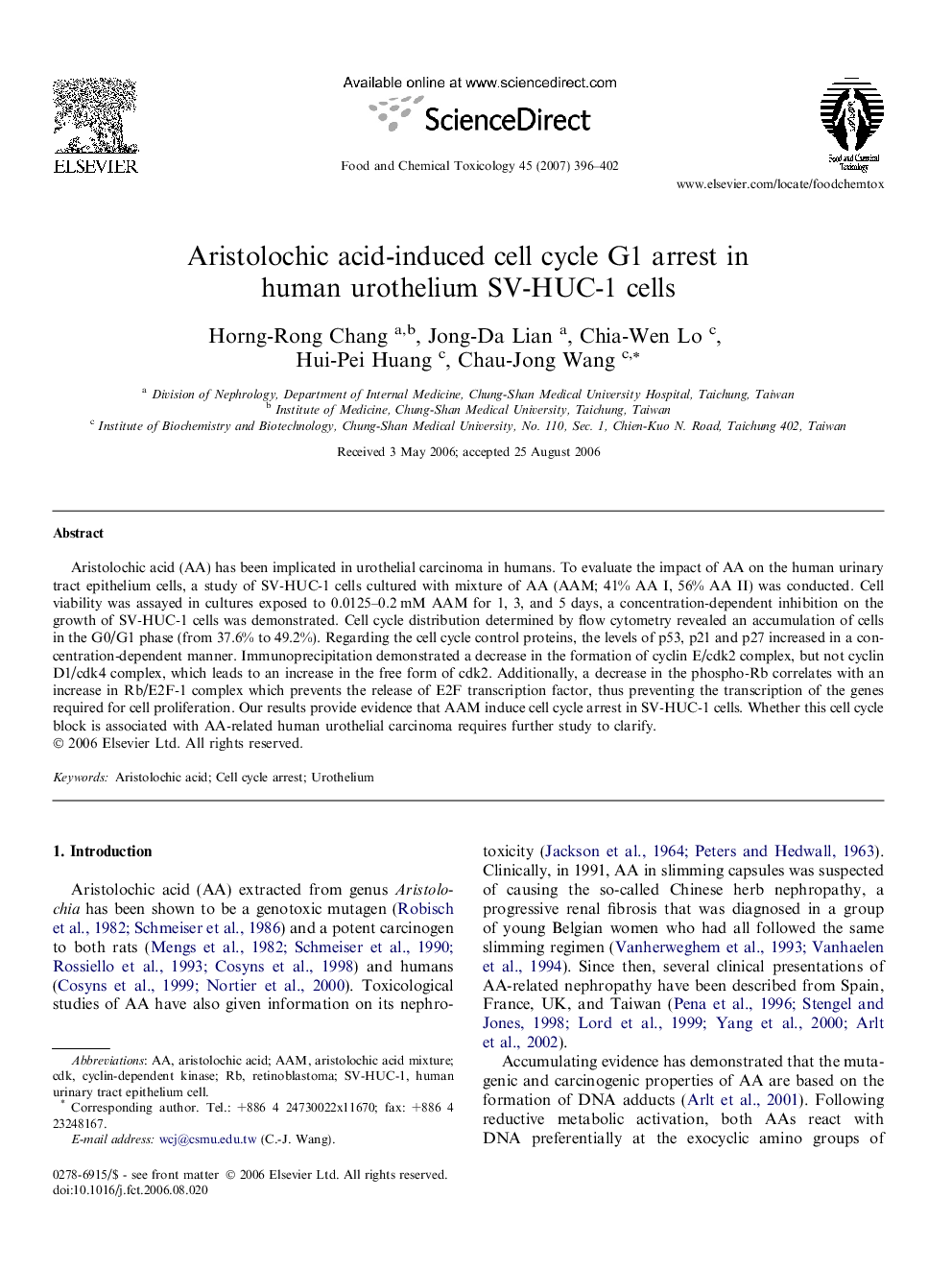| Article ID | Journal | Published Year | Pages | File Type |
|---|---|---|---|---|
| 2587548 | Food and Chemical Toxicology | 2007 | 7 Pages |
Aristolochic acid (AA) has been implicated in urothelial carcinoma in humans. To evaluate the impact of AA on the human urinary tract epithelium cells, a study of SV-HUC-1 cells cultured with mixture of AA (AAM; 41% AA I, 56% AA II) was conducted. Cell viability was assayed in cultures exposed to 0.0125–0.2 mM AAM for 1, 3, and 5 days, a concentration-dependent inhibition on the growth of SV-HUC-1 cells was demonstrated. Cell cycle distribution determined by flow cytometry revealed an accumulation of cells in the G0/G1 phase (from 37.6% to 49.2%). Regarding the cell cycle control proteins, the levels of p53, p21 and p27 increased in a concentration-dependent manner. Immunoprecipitation demonstrated a decrease in the formation of cyclin E/cdk2 complex, but not cyclin D1/cdk4 complex, which leads to an increase in the free form of cdk2. Additionally, a decrease in the phospho-Rb correlates with an increase in Rb/E2F-1 complex which prevents the release of E2F transcription factor, thus preventing the transcription of the genes required for cell proliferation. Our results provide evidence that AAM induce cell cycle arrest in SV-HUC-1 cells. Whether this cell cycle block is associated with AA-related human urothelial carcinoma requires further study to clarify.
